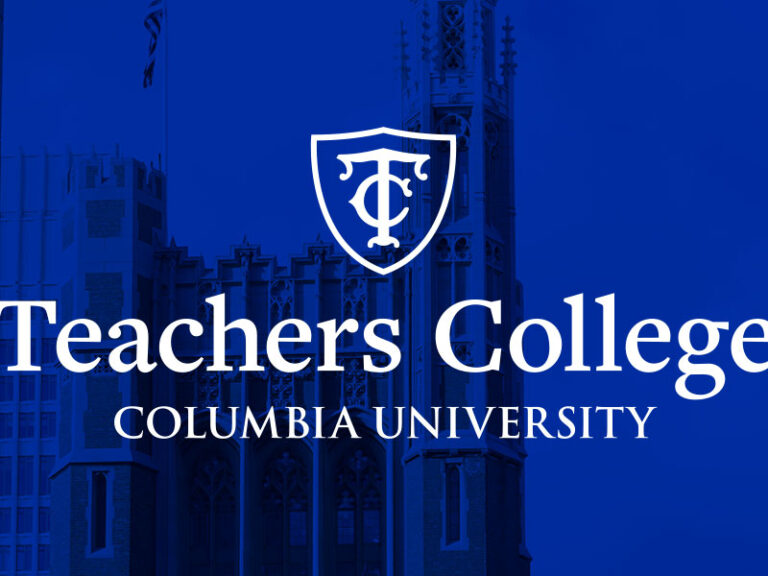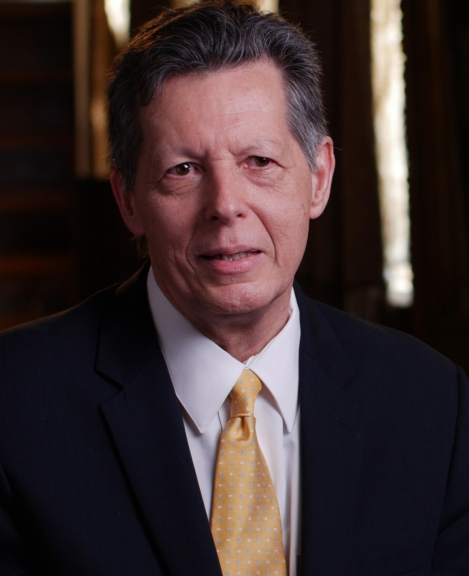Despite the Supreme Court’s decision to extend federal protections to LGBTQ+ employees in 2020, along with the Equality Act by the House of Representatives in 2021, recent data reveals that 17 out of 50 states still maintain laws and policies that discriminate against transgender and gender non-conforming (TGNC) individuals in the workplace.
“Now, more than ever, TGNC employees need support from their employers to ensure that they feel supported and safe,” shares TC’s Melanie Brewster, Professor of Counseling Psychology, whose work focuses on psychological correlates of minority stress for marginalized groups in the United States.
Today, TGNC individuals are faced with various workplace challenges impacting their well-being and career trajectories. Understanding and addressing these experiences is vital for employers to work towards a more inclusive and safe workplace climate.
“Explicit, affirmative workplace policies are fundamental, especially when we look at TGNC job satisfaction or mental health outcomes,” adds TC’s Brandon Velez, Associate Professor of Counseling Psychology. “Sometimes, employers must go above and beyond to ensure everyone feels comfortable.”
Melanie Brewster, Professor of Counseling Psychology (left) and Brandon Velez, Associate Professor of Counseling Psychology (right).
What We Need to Know
Velez shares that change starts with a healthy workplace climate. Current indicators of a healthy workplace climate include organizational policies that make employees feel heard and valued, such as support resources, adequate compensation, medical benefits and more. However, workplace climate can also negatively impact employees, from retention transparency and conflict resolution to unlawful termination.
So, how does workplace climate impact TGNC experiences specifically? Research gathered by the United States Transgender Survey (USTS) collected data from over 27,715 trans people living in all 50 states, with 70 percent of the sample having held or applied for a job the prior year. Out of the participants, 27 percent of individuals were denied employment or promotion or even fired because of their gender identity. Even further, 15 percent of all respondents reported being verbally harassed, physically attacked, or sexually assaulted at work because of their gender identity.
“We spend all of our waking hours as adults on the job, so if you feel like you have to conceal a part of your identity or modify it, it’s really stressful,” adds Brewster. “Many transgender folks, especially transgender women, face safety concerns, too. These things are likely to impact job performance.”
Even simple tasks like changing one’s legal name or seeking a gender-neutral restroom can be stressful. “Employers may require legal name and sex assigned at birth to be used on company-issued documents and other forms of communication,” adds Velez, noting that these practices are demeaning and even increase the likelihood of an employee being outed. “Gendered environments are common points of contention for TGNC employees and their employer.”
Brewster echoes sentiments in her similar findings, sharing that, on the contrary, cisgender colleagues are struggling with name and pronoun change requests from their TGNC coworkers. “Cisgender employees may be confused or feel awkward when interacting with their TGNC colleagues. Hostilities or tension surrounding gender-specific spaces (e.g., bathrooms) are likely to emerge, making it difficult to feel safe at work.”
Why It Matters
With so many obstacles at play and a challenging legal landscape, Brewster shares that it’s “understandable that individuals may hesitate to openly identify as TGNC or pursue gender-affirming processes while employed.” In her co-authored study, she reveals data from a national study by Brad Sears that “58% of TGNC employees attempted to hide their gender identity while at work.”
These stressful circumstances often lead to greater consequences and adverse physical and mental health outcomes. Research by Velez explains that TGNC individuals are at increased risk for mental health issues like post-traumatic stress disorder [PTSD], depressive disorder, and even suicide. “Consistent evidence suggests that trans individuals are placed at a higher risk for mental, physical, and behavioral health issues, given their experiences with ongoing systemic and interpersonal discrimination and harassment,” adds Velez. “People feel like they have to choose between being their most authentic self and being safe.”
“If a person is at a job and they’re just beginning their transition journey, it’s likely to be noticed by the people around them, and if it’s not received well, that’s a problem,” shares Brewster. “TGNC employees are faced with a sense of self-surveillance and self-scrutiny that, in turn, does cause severe cognitive distress.”
(Photo: iStock)
Support is Crucial
While there is still work to be done, 2023 data from the Corporate Equality Index (CEI) shows that many employers are already taking steps in the right direction. The report — which measures corporate social responsibility — revealed that this year, more companies scored a 90 or higher on the survey than ever before, exemplifying their corporate commitment to inclusion. This might look like providing more corporate training around inclusive, safe spaces or inviting external consultants to talk to employees about healthy workplace climate.
“It’s important to understand that TGNC employees often feel burdened by constantly educating those around them about their identities. Not everyone will have the same educational experiences or personal access to information about different identities, but it shouldn’t fall upon TGNC employees to teach them.”
Communities play an equal role in promoting awareness and affirmative climates.“Community advocacy for TGNC employees can look like many things, from writing op-eds for psychology outlets to talking with journalists about research as we’re doing here today…maybe even getting involved in local town halls,” Velez says. “All of these things can be at the service of making the workplace climate more affirmative and gender expansive.”
Brewster notes that amidst current challenges like debates around sports, gender-neutral bathrooms, and more, support is everything. “One of the things that I’ve seen TGNC individuals appreciate the most is having people check in on them,” she concludes. “As allies, the most important thing we can do is offer our support to those who need it most.”
— Jacqueline Teschon
Published Monday, Apr 15, 2024
Source link






